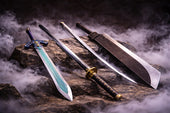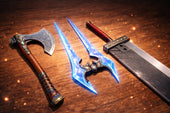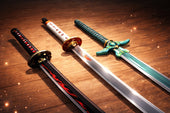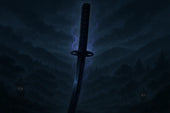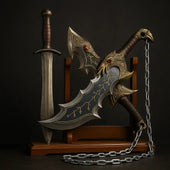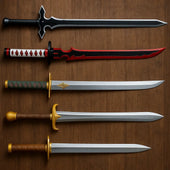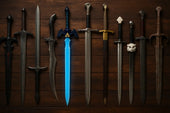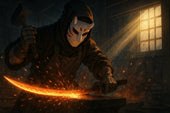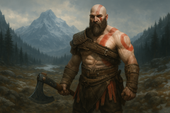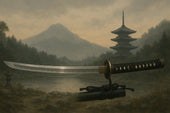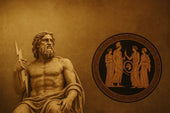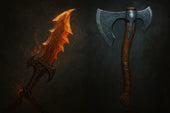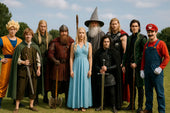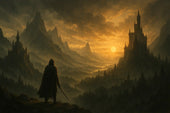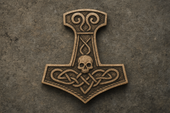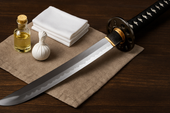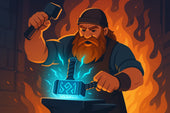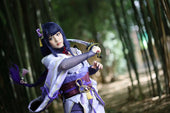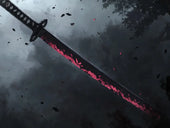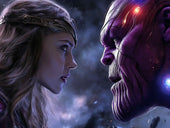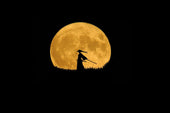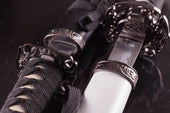Few video game franchises have blended rich mythological lore with brutal combat and cinematic storytelling as masterfully as God of War. Beginning in ancient Greece and later venturing into the cold, foreboding realms of Norse mythology, the series has evolved into one of the most compelling sagas in gaming history.
The mythology behind God of War begins with Greek legends—Kratos battles gods like Ares and Zeus—then shifts to Norse mythology, where he faces Odin, Thor, and Ragnarok. The game reimagines both pantheons to explore themes of vengeance, fate, and redemption through mythological storytelling
In this article, we’ll explore how God of War uses Greek and Norse mythology to shape its characters, plot, and worldbuilding. From Olympus to Asgard, we’ll examine how Kratos’ journey draws heavily from real myth while also taking bold creative liberties. Whether you’re a die-hard fan or a mythology enthusiast browsing The Sword Stall for collectibles, this guide unveils the legendary tales behind the game.
Greek Mythology in God of War: The Rise of the Ghost of Sparta
The original God of War trilogy (2005–2010) introduced players to Kratos, a fierce Spartan warrior tricked into murdering his own family by Ares, the Greek god of war. This traumatic event sets Kratos on a path of vengeance, ultimately leading him to kill Ares and take his place as the new god of war.
The game draws extensively from ancient Greek mythology:
-
Olympus becomes a battlefield for divine conflict.
-
Zeus, king of the gods, becomes a central antagonist.
-
Other key mythological figures such as Athena, Hades, Poseidon, and Hermes all play crucial roles.
-
Legendary beasts like Hydra, Minotaur, and Cyclops serve as boss enemies.
Kratos' war against Olympus is framed as a rebellion against fate, a theme deeply rooted in Greek tragedy. The gods are portrayed as flawed, egotistical, and often cruel—true to their ancient representations. However, the game also expands their stories, using them to reflect Kratos’ inner demons and thirst for retribution.
From Olympus to the Nine Realms: A Mythological Shift
After God of War III, the series took a bold narrative turn. God of War (2018) reboots the saga, placing Kratos in the world of Norse mythology, living a secluded life in Midgard with his young son, Atreus.
This transition breathes new life into the franchise. Instead of a rage-fuelled revenge story, the game adopts a more introspective tone—focusing on fatherhood, redemption, and the complexity of fate. The shift from Greek gods to Norse deities also introduces a new pantheon of powerful and mysterious beings.
Exploring Norse Mythology in God of War
In Norse myth, the world is structured around Yggdrasil, the World Tree, connecting nine distinct realms. God of War incorporates this cosmology, allowing players to travel through:
-
Midgard (the realm of mortals)
-
Alfheim (realm of the light elves)
-
Jötunheim (home of the giants)
-
Helheim, Muspelheim, and others
Key mythological characters appear, often reinterpreted:
-
Baldur becomes the primary antagonist in God of War (2018)—a twist on his traditional role as the beloved, invulnerable son of Odin.
-
Freya, typically known as a fertility goddess, is portrayed as a powerful Vanir witch and estranged mother.
-
Thor and Odin—featured more prominently in God of War Ragnarök—are far more brutal and intimidating than their popular Marvel counterparts.
One of the biggest surprises involves Atreus, whose true identity is revealed to be Loki—the trickster god. This sets up a fascinating narrative arc that merges established Norse myths with original storytelling.
Greek vs Norse: Contrasts in Myth and Tone
The contrast between Greek and Norse mythologies is stark, and God of War cleverly uses this to reflect Kratos’ character development.
Themes:
-
Greek mythology in the original trilogy is chaotic, passionate, and marked by vengeance. It mirrors Kratos’ own wrath.
-
Norse mythology is colder, more fatalistic, and deeply philosophical. This reflects Kratos’ internal shift from destroyer to protector.
Pantheon Dynamics:
-
The Greek gods are decadent and dramatic, constantly meddling in mortal affairs.
-
The Norse gods, especially Odin and Thor, are calculating and oppressive, concerned with prophecy and control.
Narrative Style:
-
Greek myths emphasise personal grudges and betrayal.
-
Norse myths focus on destiny, cycles of death and rebirth, and the inevitability of Ragnarök—the end of the world.
Creative Liberties and Mythological Reinterpretation
While the game pulls heavily from actual myth, it also reshapes it for dramatic and emotional effect. For instance:
-
In myth, Kratos is a relatively minor figure—one of the personified spirits of strength. The game reimagines him as a major protagonist.
-
Baldur's invulnerability traditionally comes from a mistletoe exception; in the game, it is a curse placed by Freya.
-
Atreus as Loki is a major deviation, blending game narrative with mythological foreshadowing in a way that fans have embraced.
These liberties are not inaccuracies—they are creative interpretations that honour the spirit of the myths while enhancing gameplay and storytelling.
Weapons, Combat and Mythic Symbolism
The mythology behind God of War also shapes its iconic weapons and combat:
-
Blades of Chaos represent Kratos’ bloodstained past and Greek origins.
-
Leviathan Axe, inspired by Norse lore, ties him to the new world and was forged by the dwarven brothers Brok and Sindri—mirroring mythic smiths like the Sons of Ivaldi.
-
Mjölnir, Thor’s hammer, looms as a symbol of raw Norse power.
Enemies too reflect the mythos—from Draugr and Trolls in the Norse world to Gorgons and Chimera in Greek settings.
These weapons and creatures are not just for show—they reinforce Kratos’ connection (and opposition) to the world’s divine order.
Why Mythology Resonates with Fans
Mythology is more than a backdrop in God of War—it’s a living force that drives the characters and themes forward. For players:
-
It adds emotional depth and gravitas to the narrative.
-
It connects gameplay to timeless stories of gods, monsters, and human struggle.
-
It fosters curiosity about ancient cultures and belief systems.
Moreover, for fans of fantasy, mythology, and epic storytelling, God of War delivers a deeply immersive experience that goes beyond standard hack-and-slash games.
God of War-Inspired Collectibles at The Sword Stall
At The Sword Stall, we know how powerful myth-inspired storytelling can be. That’s why we stock high-quality replicas and themed collectables perfect for fans of God of War and similar franchises.
Whether you’re looking for:
-
A Kratos-style battle axe
-
Spartan-style swords
-
Or Norse-themed Viking blades and helmets
…you’ll find gear that channels the same ancient energy seen in the game.
Looking to complete your cosplay? Our authentic and hand-forged pieces make an ideal centrepiece for any God of War costume, or an eye-catching display for your collection.
What’s Next? Will Kratos Visit Other Myths?
With the Norse saga concluding in Ragnarök, many fans are speculating what’s next for Kratos. Could he travel beyond the Nine Realms and into entirely new mythologies?
One popular theory is that God of War could explore Egyptian mythology next. With its powerful pantheon—featuring gods like Ra, Anubis, and Set—and a rich backdrop of pyramids, curses, and the afterlife, Egypt offers endless potential for storytelling, world design, and unique combat mechanics. There’s already subtle in-game evidence suggesting this direction, such as mysterious artefacts referencing other cultures.
Other fans have floated the idea of Kratos encountering Celtic, Japanese, or Hindu mythologies. Each of these belief systems has deep roots, legendary heroes, and gods with complex moralities—making them ideal for God of War’s darker, character-driven storytelling.
Whatever direction Santa Monica Studio chooses, one thing is clear: Kratos' journey is far from over. As long as myths endure, so too does the potential for new gods to challenge the Ghost of Sparta—and new weapons for players to wield in future titles.
And if you’re looking to equip yourself like a true god-slayer, don’t forget to explore The Sword Stall’s collection of myth-inspired blades and armour.




